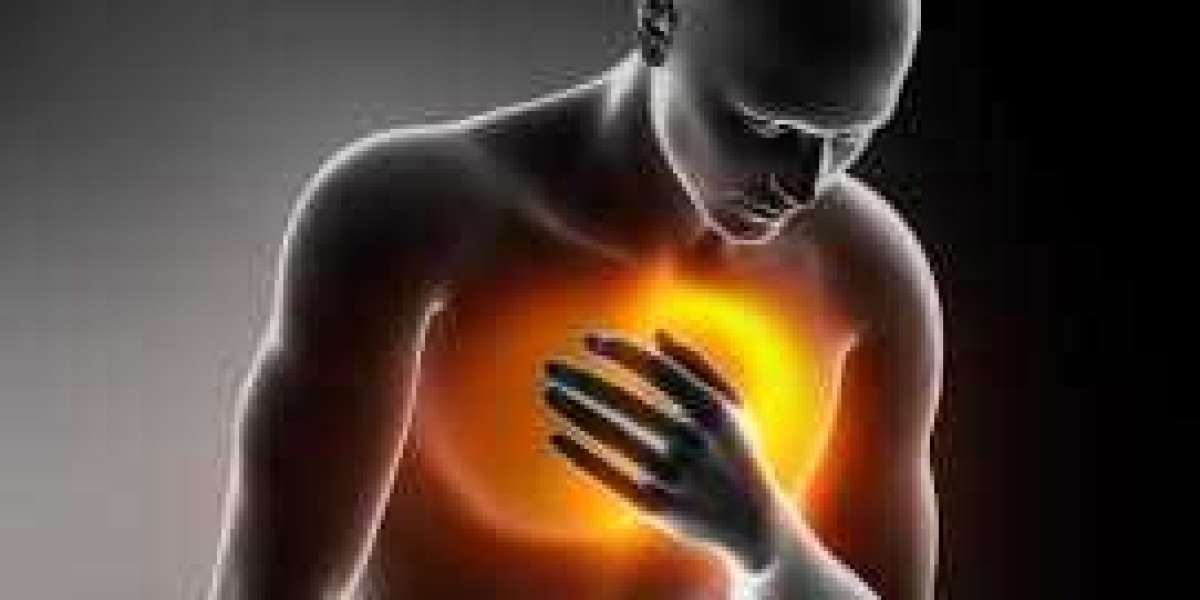Chest pain can be a warning sign of various health issues, from heart conditions to muscle strain or digestive problems. This blog explores the common causes, symptoms, and when to seek medical help to ensure timely and proper care.
Chest pain is one of the most alarming symptoms a person can experience. It’s often associated with heart-related issues, but not all chest pain is cardiac in origin. Understanding the causes and recognizing the warning signs can help you respond appropriately and protect your health.What Does Chest Pain Feel Like?Chest pain can feel different depending on its cause. It may be sharp, dull, burning, tight, or crushing. It may radiate to the arms, back, neck, jaw, or even down to the stomach. Sometimes, it appears suddenly and severely; other times, it builds gradually.While chest pain is a common symptom of a heart attack, it can also result from a wide range of other conditions—some serious, some minor.Common Causes of Chest Pain1. Heart-Related Causes:Angina – Reduced blood flow to the heart muscle, often triggered by exertion or stress.Heart attack – A blockage of blood flow that causes permanent damage to the heart muscle.Pericarditis – Inflammation of the lining around the heart.Myocarditis – Inflammation of the heart muscle.2. Gastrointestinal Causes:Acid reflux or GERD – A burning pain caused by stomach acid backing up into the esophagus.Esophageal spasms – Sudden contractions that can mimic heart pain.Hiatal hernia – A portion of the stomach pushes through the diaphragm, causing discomfort.3. Musculoskeletal Causes:Muscle strain – Overuse or injury to the chest muscles.Costochondritis – Inflammation of the cartilage where the ribs attach to the breastbone.4. Respiratory Causes:Pneumonia or pleurisy – Infections or inflammation in the lungs or the lining around the lungs.Pulmonary embolism – A blood clot in the lung, which can be life-threatening.5. Anxiety and Panic Attacks:Mental health can also trigger physical symptoms. Panic attacks can cause intense chest pain, often accompanied by shortness of breath, rapid heartbeat, and dizziness.When to See a DoctorYou should seek emergency care if your chest pain is:Crushing, squeezing, or radiating to your arms or jawAccompanied by shortness of breath, nausea, or cold sweatLasting more than a few minutes or getting worseTriggered by physical activity or stressDon’t ignore symptoms—early action can save lives.Medications and ConsiderationsCertain medications may have side effects that include chest discomfort. For example, people using Fildena 100 mg Purple Pill for erectile dysfunction should be cautious, especially if they have underlying heart conditions or are taking nitrate medications. Always consult a healthcare provider to ensure your treatment is safe.How to Prevent Chest PainPreventive steps can significantly reduce the risk of experiencing chest pain, especially from heart-related causes:Adopt a heart-healthy diet.Exercise regularly and maintain a healthy weight.Manage chronic conditions like high blood pressure and diabetes.Avoid smoking and limit alcohol intake.Reduce stress and practice relaxation techniques.ConclusionChest pain can be caused by many different conditions—some urgent, some less serious. Knowing the difference and taking timely action can make all the difference. If in doubt, it’s always best to err on the side of caution and seek medical advice. Your heart and health deserve the utmost care and attention.

